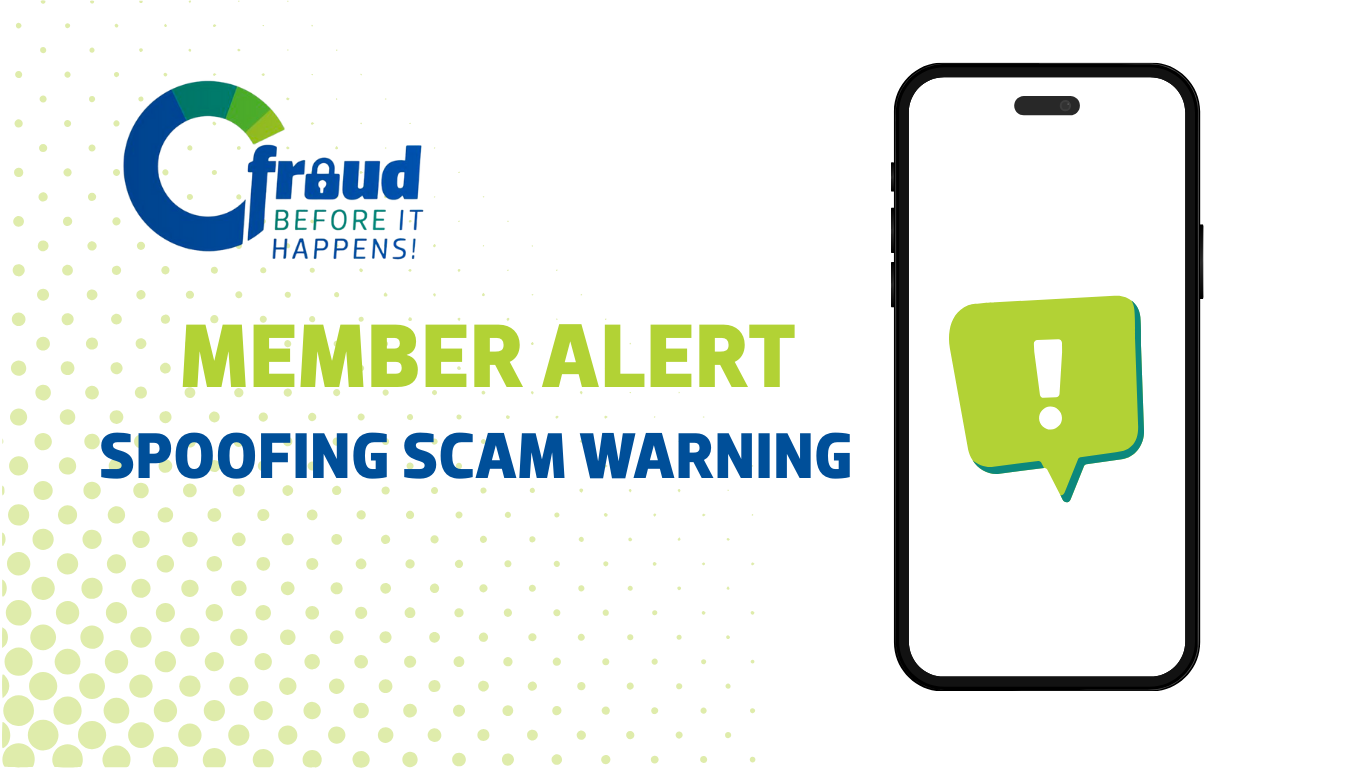Spoofing Scam Alert!
posted on Wednesday, August 27, 2025 in Fraud

Member Alert: Spoofing Scams on the Rise
C1st is urging all members to stay vigilant as spoofing scams continue to surge. According to a press release from the Federal Trade Commission (FTC), reports of impersonation scams have increased more than fourfold since 2020, with fraudsters stealing tens or even hundreds of thousands of dollars from consumers.
What Is Phone Spoofing?
Phone spoofing is a scam where fraudsters manipulate caller ID to make it appear as though they’re calling from a trusted source. These scammers often claim there are fraudulent transactions on your account and ask for sensitive information to “cancel” them.
How the Scam Works
Scammers may ask for:
- Your debit card number or PIN
- Online banking credentials (UserID and password)
- Secure access codes
Their goal is to gain unauthorized access to your account and steal your money.
What C1st Will Never Ask You
To help you identify fraud attempts, remember that C1st will never:
- Request your full debit or credit card number over the phone or via text
- Ask for your online banking UserID or password
- Send texts, emails, or make calls asking for secure access codes
What You Should Do If You Receive a Suspicious Call
- Hang up immediately
- Do not redial the number that called you even if it looks legitimate
- Call C1st directly at (866) 360-5370 to verify any claims
- Report the scam to the FTC at reportfraud.ftc.gov
Stay Informed and Share the Warning
Spoofing scams are becoming more sophisticated, but with awareness and caution, you can protect yourself and your finances. Share this alert with friends and family to help stop fraud before it happens. #CFraudBeforeItHappens
Related Resources